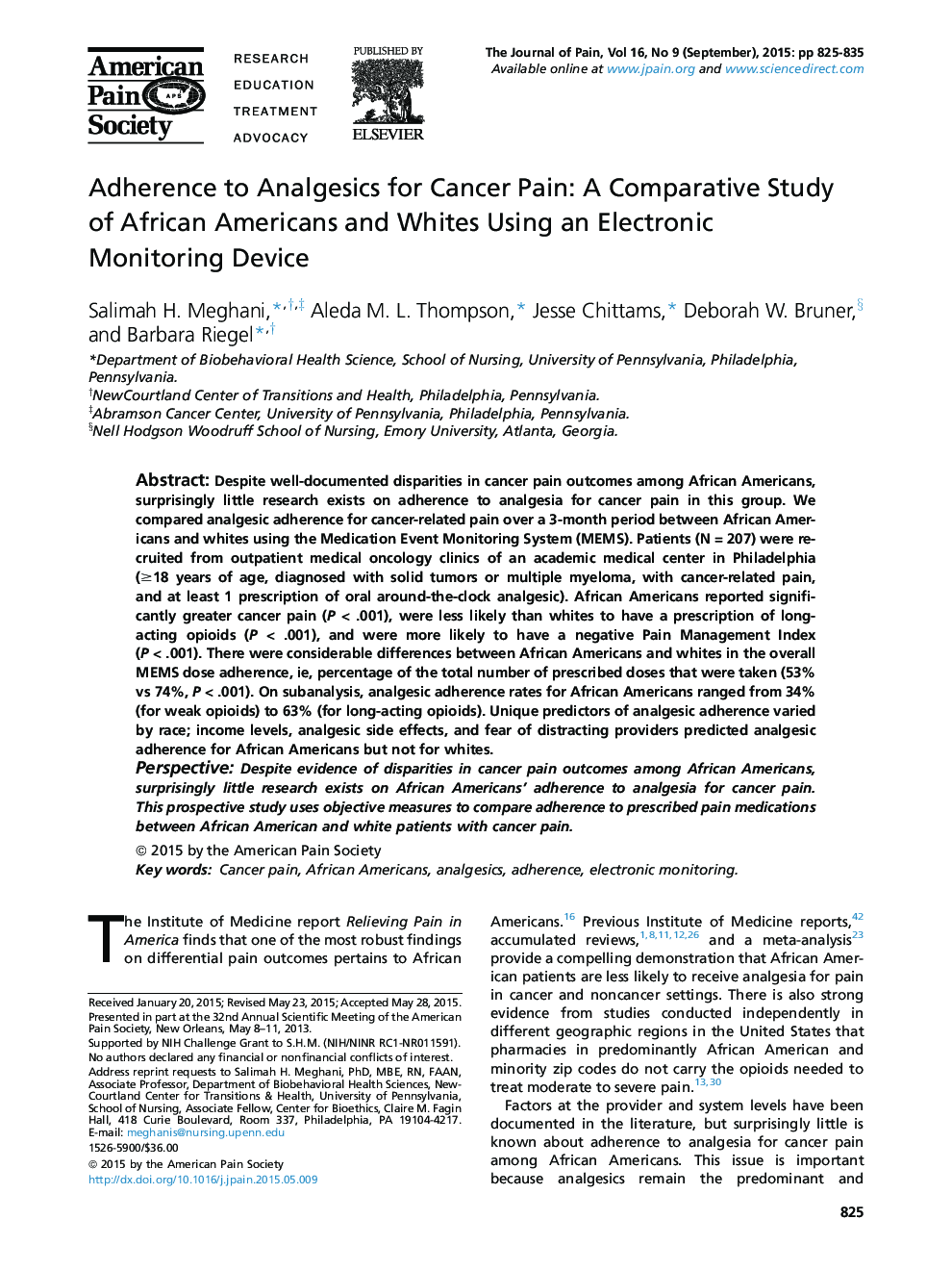| کد مقاله | کد نشریه | سال انتشار | مقاله انگلیسی | نسخه تمام متن |
|---|---|---|---|---|
| 2733616 | 1566729 | 2015 | 11 صفحه PDF | دانلود رایگان |
• There is evidence of stark disparities in cancer pain outcomes among African Americans (AAs).
• Differential analgesic adherence may be an important explanatory variable in these disparities.
• We objectively assessed adherence to prescribed analgesics for cancer pain among AAs and whites.
• Both magnitude and predictors of adherence varied by race indicating unique intervention targets for AA and whites.
• Commonly implicated fears (eg, addiction concerns) did not explain adherence in both groups.
• EP presents a biology of pain that underpins a biopsychosocial approach.
Despite well-documented disparities in cancer pain outcomes among African Americans, surprisingly little research exists on adherence to analgesia for cancer pain in this group. We compared analgesic adherence for cancer-related pain over a 3-month period between African Americans and whites using the Medication Event Monitoring System (MEMS). Patients (N = 207) were recruited from outpatient medical oncology clinics of an academic medical center in Philadelphia (≥18 years of age, diagnosed with solid tumors or multiple myeloma, with cancer-related pain, and at least 1 prescription of oral around-the-clock analgesic). African Americans reported significantly greater cancer pain (P < .001), were less likely than whites to have a prescription of long-acting opioids (P < .001), and were more likely to have a negative Pain Management Index (P < .001). There were considerable differences between African Americans and whites in the overall MEMS dose adherence, ie, percentage of the total number of prescribed doses that were taken (53% vs 74%, P < .001). On subanalysis, analgesic adherence rates for African Americans ranged from 34% (for weak opioids) to 63% (for long-acting opioids). Unique predictors of analgesic adherence varied by race; income levels, analgesic side effects, and fear of distracting providers predicted analgesic adherence for African Americans but not for whites.PerspectiveDespite evidence of disparities in cancer pain outcomes among African Americans, surprisingly little research exists on African Americans' adherence to analgesia for cancer pain. This prospective study uses objective measures to compare adherence to prescribed pain medications between African American and white patients with cancer pain.
Journal: The Journal of Pain - Volume 16, Issue 9, September 2015, Pages 825–835
